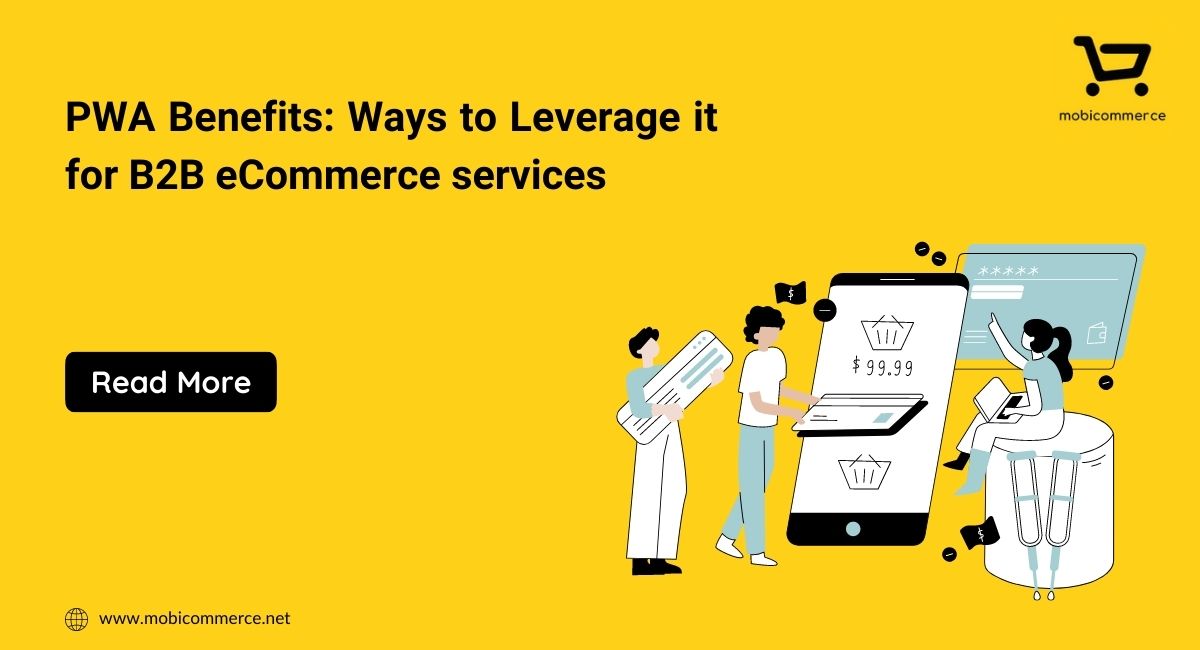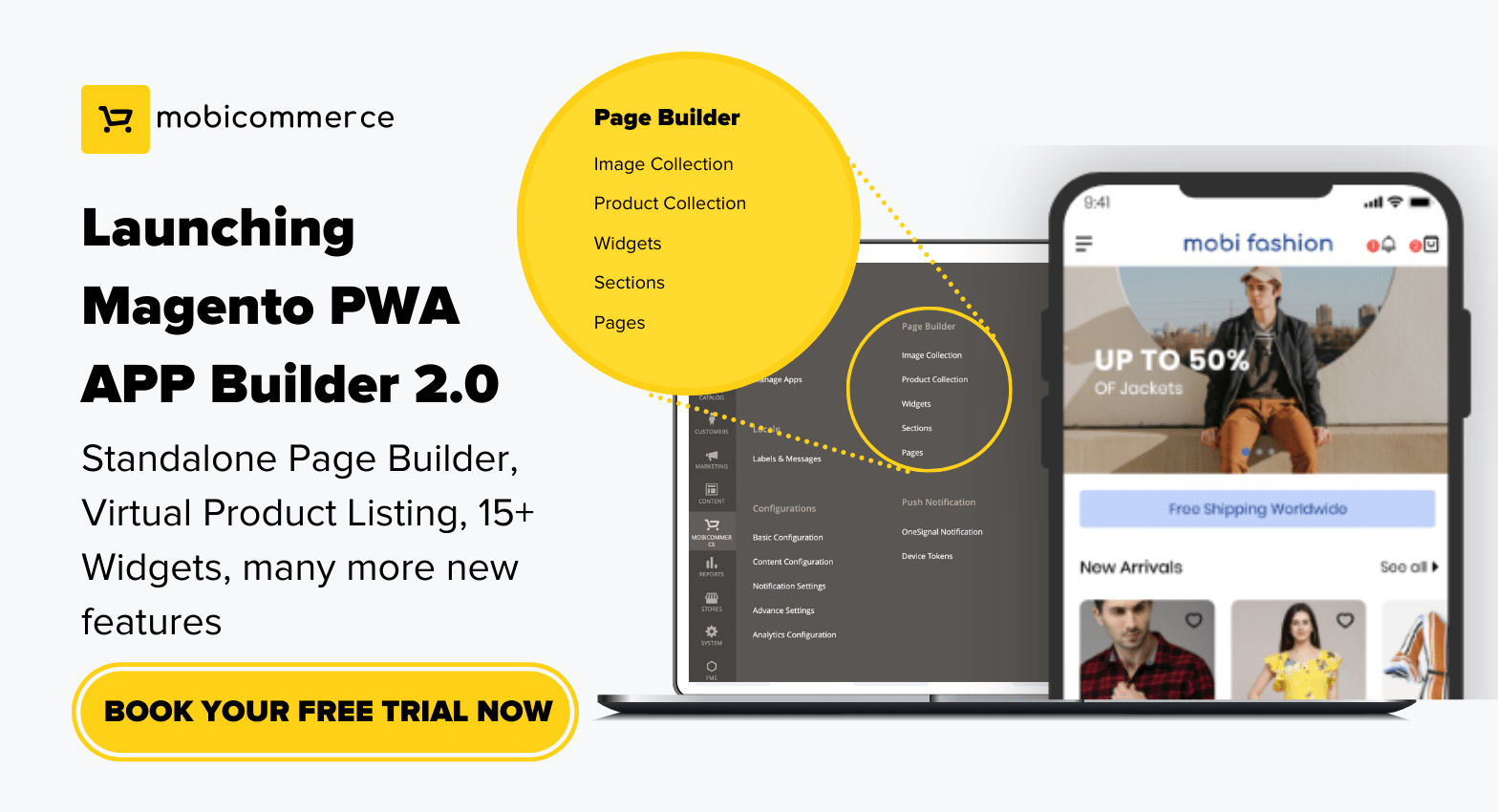In order to improve user experience, businesses are increasingly turning to progressive web apps, which combine the best features of regular apps and websites.
Ecommerce businesses which have created mobile-first PWAs have seen significantly faster page loading times, better conversion rates and improved engagement. On average, a website using PWA can increase speed performance by 63% compared to its previous mobile app, and pages load 2-4 times faster with PWA.
So let’s explore what PWAs are all about for B2B ecommerce services.
What is PWA?
Progressive Web Application is a web app that utilises web browser features and APIs to make a cross-platform web application look like a Native one and deliver the same user experience. In simple terms, it is a type of Native application that opens with the help of a browser and is possible to download on the mobile home screen. It can offer additional features based on what the device supports, providing push notifications, offline capability, and almost native app speed and look.
Progressive Web App development is done with modern techniques like HTML, CSS, and JavaScript. This assists in making the mobile user experience much more refined than a usual mobile-optimised website.
This is why PWA apps development is becoming crucial for E-commerce B2B businesses to generate sales. However, other businesses can also benefit from these technologies to create an app-like experience for their customers and enhance their potential sales and revenues.
Benefits of PWAs for E-commerce B2B
Customer engagement
Re-engage customers by using location monitoring and PWA push notifications. With tailored notifications on abandoned carts, flash promotions, or seasonal discounts, these tools assist eCommerce firms in targeting the appropriate customers at the right moment to boost conversions.
Security
PWAs offer security for both user data and digital assets of your store because they are rendered using HTTPS protocol.
Continuous innovation
Updates, customisations, new features, or fixes can be pushed into the application easily as the app runs only on a single code.
Speed
According to Google, 53% of visitors will leave a website if it takes more than three seconds to load. PWAs load rapidly and can meet customers’ expectations for rapid access.
Responsiveness
Different businesses use different screen sizes for their eCommerce store, and the developers are responsible for ensuring various users enjoy the store experience regardless of the device they use. PWA are a perfect option for such responsive designs.
PWA technology
Well-designed PWAs can enhance overall performance in search results. Security, a responsive layout, and quick page load all improve user experiences and enhance your website’s technical search engine optimisation (SEO).
New functionality and features can be implemented straight away, and because users always have the latest version, customer support queries can be reduced.
Compared to many mobile apps, PWAs offer superior security because they are created utilising the most recent web protocols.
PWAs can remove the need for development teams to create and develop separate iOS or Android versions of their native applications, which can be expensive.
Are PWAs the future?
Gartner estimates that PWAs will act as the bridge between mobile app capabilities and web experiences. Some companies have already decided that PWAs are a better alternative than keeping a website and one or even more mobile applications.
With more than half of web traffic coming from mobile phones, providing the best user experience is becoming an important need. PWAs can be the next logical step for B2B organisations that don’t already have a mobile app to complement their e-commerce website.
Final thoughts
Progressive Web Applications are well known for providing value to E-commerce B2b businesses. With low data use, reduced bounce rates, engaging user experiences, and fast page loading, search engine performance for your website will enhance.
B2B ecommerce website development offers significant benefits over native websites and traditional mobile apps by integrating the best features. They are not only assisting businesses to gain more website traffic from organic search but are also turning more website visitors into eCommerce transactions and leads.






















